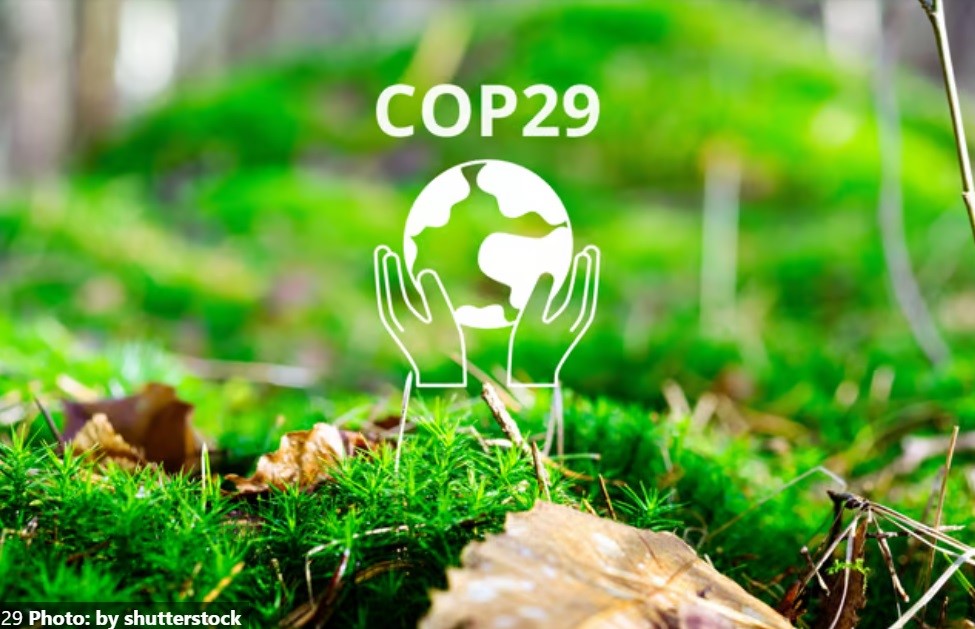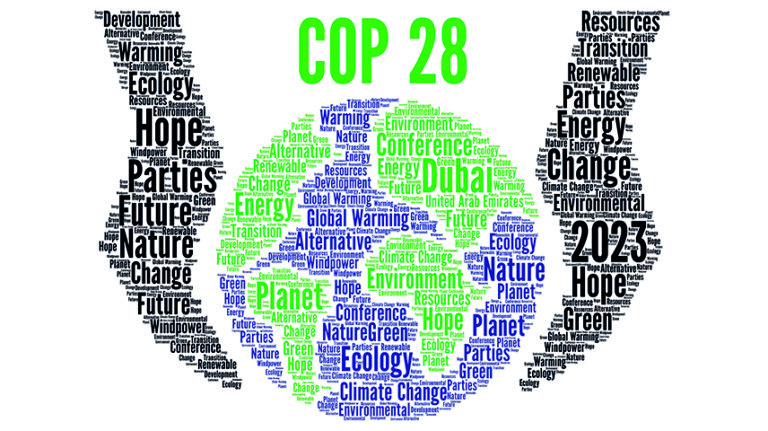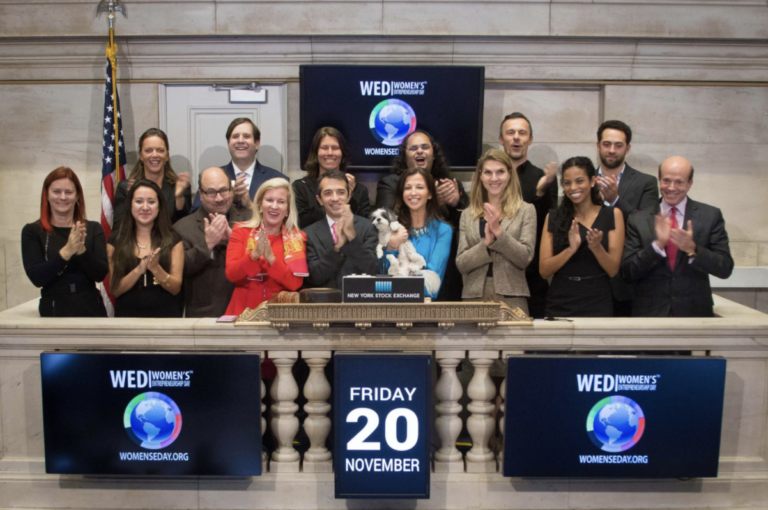Understanding COP: The Global Climate Action Summit
COP is an abbreviation for Conference of the Parties, which is the main decision-making body of the United Nations Framework Convention on Climate Change (UNFCCC), an international treaty aimed at combating climate change. The COP hosts an annual meeting with representatives from all parties (countries) to assess progress, review and negotiate new agreements to mitigate and adapt to the impacts of climate change, such as those set by the Kyoto Protocol and the Paris Agreement. An integral part of COP is evaluating Nationally Determined Contributions (NDCs) from countries, which outlines their climate actions and goals. The Paris Agreement, established at COP21 in 2015 aims to keep global warming below 1.5℃, above pre-industrial levels and pushes countries to update their emission reduction plans every 5 years.
Key Takeaways from COP28: Lessons Learned and Next Steps
The 2023 Conference of the Parties (COP) held in Dubai, UAE marked the largest gathering in the event’s history since its inception in 1995, with approximately 85,000 participants. Attendees included heads of state, representatives from international organizations and companies (including those from the fossil fuel sector), civil society members, businesses, youth, and indigenous peoples. Over the course of the two weeks, a series of significant decisions were made. Key outcomes included:
- Conclusion of the first Global Stocktake (GST): Revealed current climate measures are inadequate to meet the 1.5℃ Paris Agreement target. It called for enhanced Nationally Determined Contributions (NDCs) and greater support for developing nations.
- Phasing out of fossil fuels: Emphasized the urgent need to cut fossil fuel use and support the transition to renewable energy, despite resistance to a complete phase-out.
- Funding for loss and damage: Established a new UNFCCC mechanism with over USD 600 million pledged. This fund aims to support vulnerable nations, with technical assistance provided through the Santiago network’s secretariat.
- Nature conservation for climate action: Urged integrating climate and biodiversity efforts, aligned with the Kunming-Montreal Global Biodiversity Framework’s ‘30×30’ pledge to protect 30% of the planet’s land and oceans by 2030.
- Scaling up climate solutions: Launched a roadmap to halve global emissions by 2030, with new commitments on climate, health, sustainable agriculture, and methane reduction, supported by significant financial pledges.
Major Themes shaping COP29 Negotiations
Following the outcome of COP28, there are a number of themes that we expect the discussions at COP29 in Baku, Azerbaijan to be centered around. During the June 2024 Bonn Climate Conference, which served as a precursor to COP29, minimal progress was made regarding mitigation, scaling climate action and climate finance. Developed nations failed to provide concrete numbers for the New Collective Quantified Goal (NCQG) leaving smaller nations frustrated. Small progress was made regarding Article 6- Carbon Markets though most issues were deferred, setting a difficult stage for COP29. As a result, COP29 will need to address these unresolved issues. Key areas of focus will most likely include:
- Climate finance: This year’s COP has been nicknamed the ‘Finance COP’ due to the new global climate finance goal that is expected to be established this year. This new goal will replace the 2009 annual USD100 billion pledge. A new goal is set to be negotiated as it was found that the USD100 billion goal falls short of the needs to combat climate impacts. Climate adaptation alone requires between USD194 and USD366 billion per year. Success in these negotiations would entail setting a more ambitious and realistic target that can adequately fund both mitigation and adaptation projects to ensure we are on track of the Paris Agreement goals.
- Loss and damage: Discussions will likely center on finalizing and operationalizing the fund designed to support countries most vulnerable to climate change impacts, including small island states and least developed countries. Negotiations are expected to tackle key issues like financing the fund, eligibility criteria and resource allocation. Operationalizing the fund could include establishing a mechanism for providing timely support for those affected by climate change impacts.
- Carbon markets: Negotiations on Article 6 of the Paris Agreement will center on finalizing the mechanisms for international carbon markets, including carbon trading and the functioning of international registries. Unresolved issues include the authorization of mitigation outcome transfers and ensuring environmental integrity and transparency of markets. Progress on this is being delayed due to disagreements on whether the markets should be centralized or decentralized. Those favoring centralization argue that it ensures transparency while those in support of decentralization believe it offers more flexibility for countries to tailor the system to their needs. Reaching a consensus on this would mean major progress on finalizing Article 6.
- Energy transition: Focusing on accelerating the shift from fossil fuels to renewable energy sources. This may include addressing the setbacks associated with sustainable energy solutions, ensuring the transition is just and strategies for increasing clean energy technologies. Countries will most likely be pushed to adopt more ambitious NDCs. Ideally, a just-transition strategy could be tabled ensuring that the shift to renewable energy does not negatively impact vulnerable populations as well as employees in the fossil fuel industry.
- Water: Discussions addressing the increasing impacts of climate change on water resources, improving water resources management techniques and integrating water management into national climate adaptation and mitigation plans.
- Biodiversity: Promotion of nature-based solutions, enhanced nature conservation efforts that will bolster climate resilience. Expected are discussion regarding how REDD+ (Reducing Emission from Deforestation and Forest Degradation) can contribute to both climate goals and biodiversity conservation.
- Civil society involvement: COP29 is expected to have a day for civil society organizations to present their perspectives and demands regarding climate change. Success for civil society organizations would mean that they have a meaningful platform to voice their concerns and demands. Additionally, their perspectives would be taken into account during decision-making processes.
Expected Challenges and Debates
As with any previous COPs, challenges, debates and hiccups are to be expected during the conference. One of the debates expected is the presence of fossil fuel lobbyists at COP and their influence over the climate negotiations. Discussions may focus on how their lobbying could slow down efforts to phase out fossil fuels and influence policy decisions and undermine climate action.
Another major challenge will continue to be the debate of phasing out versus reducing the dependency on fossil fuels. There will most likely be conflict over the speed and approach of phasing out fossil fuel versus a gradual transition
Active Participation: Shaping the Future at COP29
Though progress in finalizing and operationalizing agreements from previous COPs may seem slow, COP29 in Baku presents a crucial opportunity to address ongoing issues like climate finance, loss and damage and the just energy transition. With unresolved debates and the matter of more ambitious targets ahead, it is important to stay informed and play a role. Engaging with advocacy groups, using social media to spread awareness and attending COP29 in person can all play a part in driving change. Your involvement will be vital in shaping effective climate policies and driving global action towards a sustainable future.
Image Courtesy: https://shorturl.at/vn5k3



